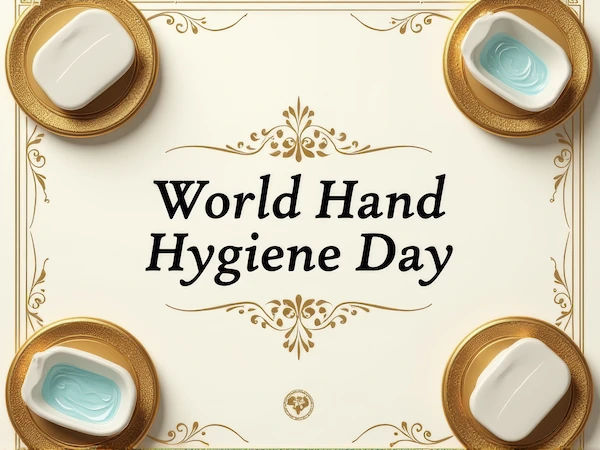7 Effective Ways to Burp Your Baby for Instant Relief
Know about burping in a baby, why it is essential and seven ways to burp your baby.

Written by Dr. Vasanthasree Nair
Reviewed by Dr. Shaik Abdul Kalam MD (Physician)
Last updated on 13th Jan, 2026

Introduction
Watching your newborn squirm, grunt, and cry in discomfort after a feeding can be heart-wrenching. Often, the culprit is simply a pocket of trapped air that needs a little help to release. Burping your baby is an essential parenting skill, as crucial as feeding and diapering. It’s not just a nicety; it’s a key to a comfortable, content, and less fussy infant. This guide will walk you through everything you need to know about burping your baby. We’ll explore the top tried-and-tested methods, from the classic over-the-shoulder hold to innovative on-the-go techniques, decode your baby’s cues, and answer all your pressing questions. By the end, you’ll be equipped with the knowledge and confidence to tackle infant gas and provide your little one with instant relief.
Why Burping Your Baby is Non-Negotiable
Before we dive into the how, let's understand the why. Babies, especially newborns, are inefficient eaters. Whether breastfed or bottle-fed, they inevitably swallow air along with their milk. Their tiny digestive systems are still developing and aren't yet strong enough to always move this air through their system on its own.
The Science Behind the Gas: Why Babies Need Help
This swallowed air becomes trapped in the stomach, creating a bubble that takes up valuable space. This can make your baby feel full and uncomfortable before they’ve actually finished their meal, leading to fussiness and interrupted feeding. It can also cause painful pressure, mimicking colic symptoms. A good burp releases this air, making room for more milk and providing immediate relief from gas pain.
Consult a Top Paediatrician for Personalised Advice
Signs Your Baby Needs to Burp
Your baby will give you signals. Look for:
Fussiness during a feed: Pulling away, arching their back, or crying.
Spitting up: A small amount of spit-up often follows a burp.
Grimacing, grunting, or squirming.
Appearing uncomfortable or restless when lying down after a feeding.
A good rule of thumb is to burp your baby every 2-3 ounces during bottle-feeding or when you switch breasts during breastfeeding.
Mastering the Classic: Over-the-Shoulder Burp
This is the most universal and often first-learned technique. It’s simple, effective, and provides comforting closeness.
Step-by-Step Guide to the Shoulder Hold
1. Drape a burp cloth over your shoulder (trust us!).
2. Hold your baby upright, facing you, with their chin resting comfortably on your shoulder.
3. Use one hand to support their bottom and lower back.
4. With your other hand, gently pat or rub their back. The motion should be firm and rhythmic, not a light tickle. Focus on the left side of their back, as this is where the stomach is located.
Pro Tips for Maximum Effectiveness
Gentle Pressure: Sometimes, applying gentle upward pressure with the patting hand can help.
Walk Around: A little movement can jiggle the air bubble loose. Try slowly walking around the room while patting.
Check Position: Ensure your baby’s head is supported and their airway is clear.
The Sitting-Up Method: Burping on Your Lap
This position offers more control and is excellent for babies with a bit more head control, typically around 3-4 months old.
How to Position Your Baby Correctly
1. Sit your baby upright on your lap, facing away from you.
2. Lean them slightly forward so their chest and head are supported by one of your hands and your arm. Use the heel of your hand to provide gentle support under their chin and chest, ensuring you’re not putting pressure on their throat.
3. With your free hand, gently pat or rub their back.
Why is this method great for Older Infants?
This position aligns the digestive tract optimally for the air to travel up and out. It’s less jostling than the shoulder method ,and many parents find it less messy, as any spit-up tends to go forward onto the burp cloth rather than down your back.
The Tummy Time Technique: Lying Across Your Lap
This method uses gravity to its full advantage and can be particularly effective for very gassy babies.
Executing the Lap Hold Safely
1. Place a burp cloth across your lap.
2. Lay your baby face down across your knees, so their tummy is resting on one leg and their head is turned to the side, supported by your other leg. Ensure their head is higher than their chest.
3. Secure them by holding them firmly on their side/back.
4. Gently pat or rub their back. The pressure from your legs on their abdomen can help coax the air out.
What to Do If Your Baby Won't Burp
Not every feeding will result in a satisfying belch. Some babies are just less gassy than others. If your baby seems content and isn't showing signs of discomfort, they might not need to burp.
Try a Change of Position
If your baby is fussy but won't burp after a few minutes in one position, switch to another. The change in angle and pressure can target the air bubble differently.
Burping and Spit-Up: What’s Normal?
It is perfectly normal for a burp to be accompanied by a small amount of spit-up (known as "possetting"). This is just milk mixed with saliva that comes up with the air. It is not the same as vomiting, which is forceful and in larger quantities. If your baby is happy, gaining weight well, and the spit-up isn't causing distress, it's usually nothing to worry about. However, if the spit-up is projectile, frequent, or accompanied by crying and arching (signs of GERD), it’s best to discuss it with a doctor.
When Do Babies Stop Needing to Be Burped?
As your baby grows, their digestive system matures. They become more efficient eaters, swallowing less air, and they gain the ability to pass gas and burp on their own. Most babies naturally outgrow the need to be burped between 4 and 9 months of age. You’ll notice they might burp on their own after sitting up or become less fussy, even if they don’t burp after a meal. Follow your baby’s cues—if they seem fine without burping, you can gradually stop the practice.
Conclusion
Learning how to burp your baby effectively is a journey of patience and practice. Every baby is different, and what works like a charm one day might not the next. The key is to have a few techniques in your arsenal and to be attentive to your baby’s unique signals. Remember, burping is a simple act of care that provides profound comfort to your little one. It strengthens your bond and ensures their feeding times are peaceful and positive. If you ever feel concerned about your baby’s gas, discomfort, or spit-up, never hesitate to seek professional guidance. The paediatricians at Apollo24|7 are available for online consultations to provide personalised advice and peace of mind, ensuring your baby’s health and happiness. You’ve got this!
Consult a Top Paediatrician for Personalised Advice
Consult a Top Paediatrician for Personalised Advice

Dr. Jayati Das
Paediatrician
9 Years • MBBS , MD (Paediatrics)
Howrah
Bijaya Clinic, Howrah

Dr. Vinod Kumar Sharma
Paediatrician
38 Years • MBBS , D.C.H , D.N.B (Paediatrics)
New Delhi
Maple Care, New Delhi

Dr. Dinesh Kumar Chandak
Paediatrician
12 Years • MBBS,MD PAEDIATRICS
Barasat
Diab-Eat-Ease, Barasat
(50+ Patients)

Dr. Debangana Chatterjee
Paediatrician
6 Years • MBBS, MD, DNB (Paed.)
Kolkata
MCR SUPER SPECIALITY POLY CLINIC & PATHOLOGY, Kolkata

Dr. Nitin Nayak
Paediatrician
17 Years • MBBS , DCH (Child health) , DNB (Paediatrics)
Bengaluru
R V speciality Clinic, Bengaluru
More articles from General Medical Consultation
Frequently Asked Questions
1. What if my baby is asleep? Should I wake them to burp?
It’s generally recommended to burp a sleeping baby if they haven’t been burped after a feeding. You can try gently lifting them to your shoulder and patting their back without fully waking them. If they don’t burp after a few minutes and are sleeping peacefully, it’s usually okay to let them rest.
2. How long should I try to burp my baby for?
Aim for a few minutes per position. If you don’t get a burp after 5-10 minutes of trying different methods, it’s acceptable to stop. Forcing it can lead to unnecessary frustration.
3. My breastfed baby doesn’t burp much. Is that normal?
Yes, it’s common. Breastfed babies often swallow less air than bottle-fed babies because the latch and flow can be more controlled. If your breastfed baby seems comfortable without burping, they may not need it as frequently.
4. Why does my baby cry when I try to burp them?
They might already be in discomfort from the gas, and the change in position or patting might intensify the feeling temporarily. Try to be gentle but persistent, as the burp will ultimately bring relief. If crying persists consistently, it’s worth mentioning to your paediatrician,
5. Are there any baby gas relief techniques beyond burping?
Yes. 'Bicycling' your baby’s legs, gentle tummy massages (clockwise), and holding them in a curled-up 'colic hold' can help move gas through the intestines for relief from lower gas pains.




